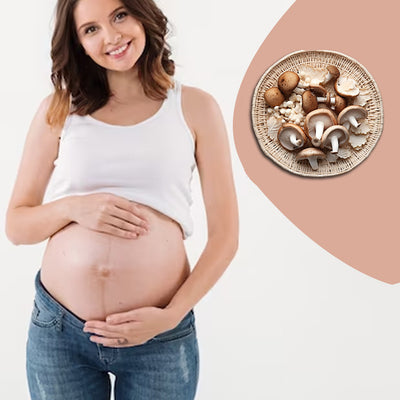Benefits of Eating Ajwain (carrom seeds) During Pregnancy

Eating Ajwain During Pregnancy
Consuming ajwain, or carom seeds, during pregnancy can be a healthy addition to a woman's diet. Ajwain contains nutrients such as iron, calcium, and fiber, all of which are necessary for the mother's and developing fetus' overall health. Its carminative properties can help with common digestive issues during pregnancy, such as bloating and indigestion. The presence of thymol in ajwain contributes to its antimicrobial properties, which may help maintain a healthy immune system. However, it is critical to consume ajwain in moderation, as excessive consumption may have negative consequences. Pregnant women should consult with their healthcare providers before incorporating ajwain into their diet to ensure it is compatible with their specific health conditions.
Is It Safe to Eat Ajwain while Pregnant?
Consuming ajwain while pregnant can be both safe and beneficial. Ajwain, also known as carom seeds, contains essential nutrients such as iron and calcium, which are important for maternal and fetal health. Its carminative properties help to relieve common digestive discomforts during pregnancy. However, moderation is essential, as excessive intake can have negative consequences. It is best for pregnant women to consult with their doctors before incorporating ajwain into their diet. While ajwain can be beneficial to overall health, personalized guidance ensures a safe and healthy pregnancy experience.
Reasons to Eat Ajwain During Pregnancy:
Rich in Nutrients: Ajwain is a nutritional powerhouse, containing essential elements like iron, calcium, and fiber. These nutrients are vital for the development of the baby's bones, teeth, and overall growth.
Digestive Aid: Carom seeds have carminative properties that can alleviate common digestive issues during pregnancy, such as bloating, gas, and indigestion. This can contribute to a more comfortable and healthy digestive system.
Antimicrobial Properties: Ajwain contains thymol, which possesses antimicrobial properties. This can support the immune system, helping to protect both the mother and the developing fetus from infections.
Morning Sickness Relief: Some pregnant women experience morning sickness, and ajwain is known for its anti-nausea properties. Incorporating it into the diet may help alleviate nausea and vomiting.
Aids Respiratory Health: Ajwain has been traditionally used to address respiratory issues. Its antimicrobial and anti-inflammatory properties may contribute to maintaining a healthy respiratory system during pregnancy.
Remember, while ajwain can offer these benefits, it's crucial to consume it in moderation. Pregnant individuals should always consult with their healthcare providers before making significant dietary changes to ensure it aligns with their specific health conditions and needs.
Are There Any Side Effects to Eating Ajwain in Pregnancy?
Consuming ajwain during pregnancy can be both safe and beneficial. Ajwain, contains essential nutrients like iron and calcium, which are beneficial to maternal and fetal health. Its carminative properties help reduce common digestive problems during pregnancy. However, limited amounts is necessary because excessive consumption can have negative consequences. It is best for pregnant women to consult their doctors before adding ajwain to their diet. While ajwain can be beneficial to overall health, individualized care ensures a safe and healthy pregnancy. provider to ensure ajwain consumption aligns with personal health conditions and dietary requirements.














